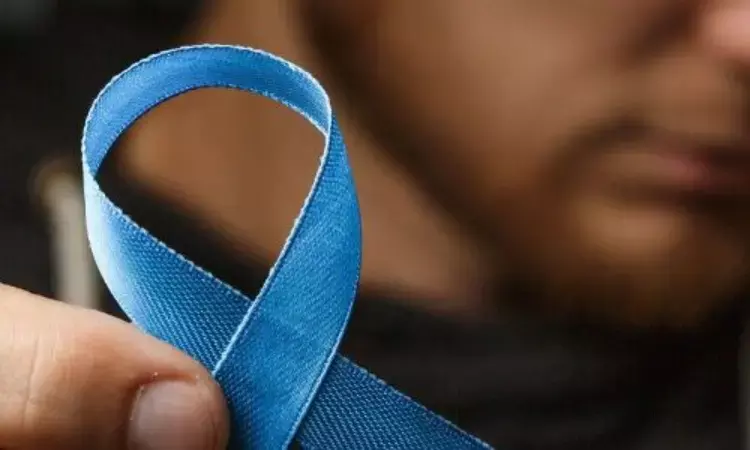- Home
- Medical news & Guidelines
- Anesthesiology
- Cardiology and CTVS
- Critical Care
- Dentistry
- Dermatology
- Diabetes and Endocrinology
- ENT
- Gastroenterology
- Medicine
- Nephrology
- Neurology
- Obstretics-Gynaecology
- Oncology
- Ophthalmology
- Orthopaedics
- Pediatrics-Neonatology
- Psychiatry
- Pulmonology
- Radiology
- Surgery
- Urology
- Laboratory Medicine
- Diet
- Nursing
- Paramedical
- Physiotherapy
- Health news
- Fact Check
- Bone Health Fact Check
- Brain Health Fact Check
- Cancer Related Fact Check
- Child Care Fact Check
- Dental and oral health fact check
- Diabetes and metabolic health fact check
- Diet and Nutrition Fact Check
- Eye and ENT Care Fact Check
- Fitness fact check
- Gut health fact check
- Heart health fact check
- Kidney health fact check
- Medical education fact check
- Men's health fact check
- Respiratory fact check
- Skin and hair care fact check
- Vaccine and Immunization fact check
- Women's health fact check
- AYUSH
- State News
- Andaman and Nicobar Islands
- Andhra Pradesh
- Arunachal Pradesh
- Assam
- Bihar
- Chandigarh
- Chattisgarh
- Dadra and Nagar Haveli
- Daman and Diu
- Delhi
- Goa
- Gujarat
- Haryana
- Himachal Pradesh
- Jammu & Kashmir
- Jharkhand
- Karnataka
- Kerala
- Ladakh
- Lakshadweep
- Madhya Pradesh
- Maharashtra
- Manipur
- Meghalaya
- Mizoram
- Nagaland
- Odisha
- Puducherry
- Punjab
- Rajasthan
- Sikkim
- Tamil Nadu
- Telangana
- Tripura
- Uttar Pradesh
- Uttrakhand
- West Bengal
- Medical Education
- Industry
YouTube to prohibit cancer treatment misinformation

YouTube will streamline dozens of existing medical misinformation guidelines to fall under three categories – Prevention, Treatment, and Denial. These policies will apply to specific health conditions, treatments, and substances where content contradicts local health authorities or the World Health Organization (WHO).
New Delhi: With an ongoing effort to build out its medical misinformation policy, the Google-owned video-sharing platform- YouTube announced on Tuesday that it will begin removing content that promotes cancer treatments proven to be harmful or ineffective, or content that discourages viewers from seeking professional medical treatment.
This includes content that promotes unproven treatments in place of approved care or as a guaranteed cure, and treatments that have been specifically deemed harmful by health authorities. For instance, a video that claims “garlic cures cancer,” or “take vitamin C instead of radiation therapy” would be removed.
"When cancer patients and their loved ones are faced with a diagnosis, they often turn to online spaces to research symptoms, learn about treatment journeys, and find community. Our mission is to make sure that when they turn to YouTube, they can easily find high-quality content from credible health sources," stated Dr Garth Graham, head of YouTube Health.
Also read- YouTube To Crack Down On Videos With Abortion Misinformation
"And as part of our ongoing work to increase the amount of high-quality health content on YouTube, we’re publishing a playlist of engaging, informative cancer-related videos from a range of authoritative sources, and we’re collaborating with Mayo Clinic on new video content to share information on a variety of cancer conditions," he added.
YouTube will streamline dozens of existing medical misinformation guidelines to fall under three categories – Prevention, Treatment, and Denial. These policies will apply to specific health conditions, treatments, and substances where content contradicts local health authorities or the World Health Organization (WHO).
"To determine if a condition, treatment or substance is in the scope of our medical misinformation policies, we’ll evaluate whether it’s associated with a high public health risk, publicly available guidance from health authorities around the world, and whether it’s generally prone to misinformation," said Graham.
Here’s what the framework will look like:
Prevention misinformation: YouTube will remove content that contradicts health authority guidance on the prevention and transmission of specific health conditions and the safety and efficacy of approved vaccines. For example, this encompasses content that promotes a harmful substance for disease prevention.
Treatment misinformation: Removal of content that contradicts health authority guidance on treatments for specific health conditions, including promoting specific harmful substances or practices. Examples include content that encourages unproven remedies in place of seeking medical attention for specific conditions, like promoting caesium chloride as a treatment for cancer.
Denial misinformation: It will remove content that disputes the existence of specific health conditions. This covers content that denies people have died from COVID-19.
Also read- PGIMER Blocks Facebook, YouTube After Excessive Internet Usage During Duty Hours
MA in Journalism and Mass Communication
Exploring and learning something new has always been her motto. Adity is currently working as a correspondent and joined Medical Dialogues in 2022. She completed her Bachelor’s degree in Journalism and Mass Communication from Calcutta University, West Bengal, in 2021 and her Master's in the same subject in 2025. She mainly covers the latest health news, doctors' news, hospital and medical college news. She can be contacted at editorial@medicaldialogues.in


